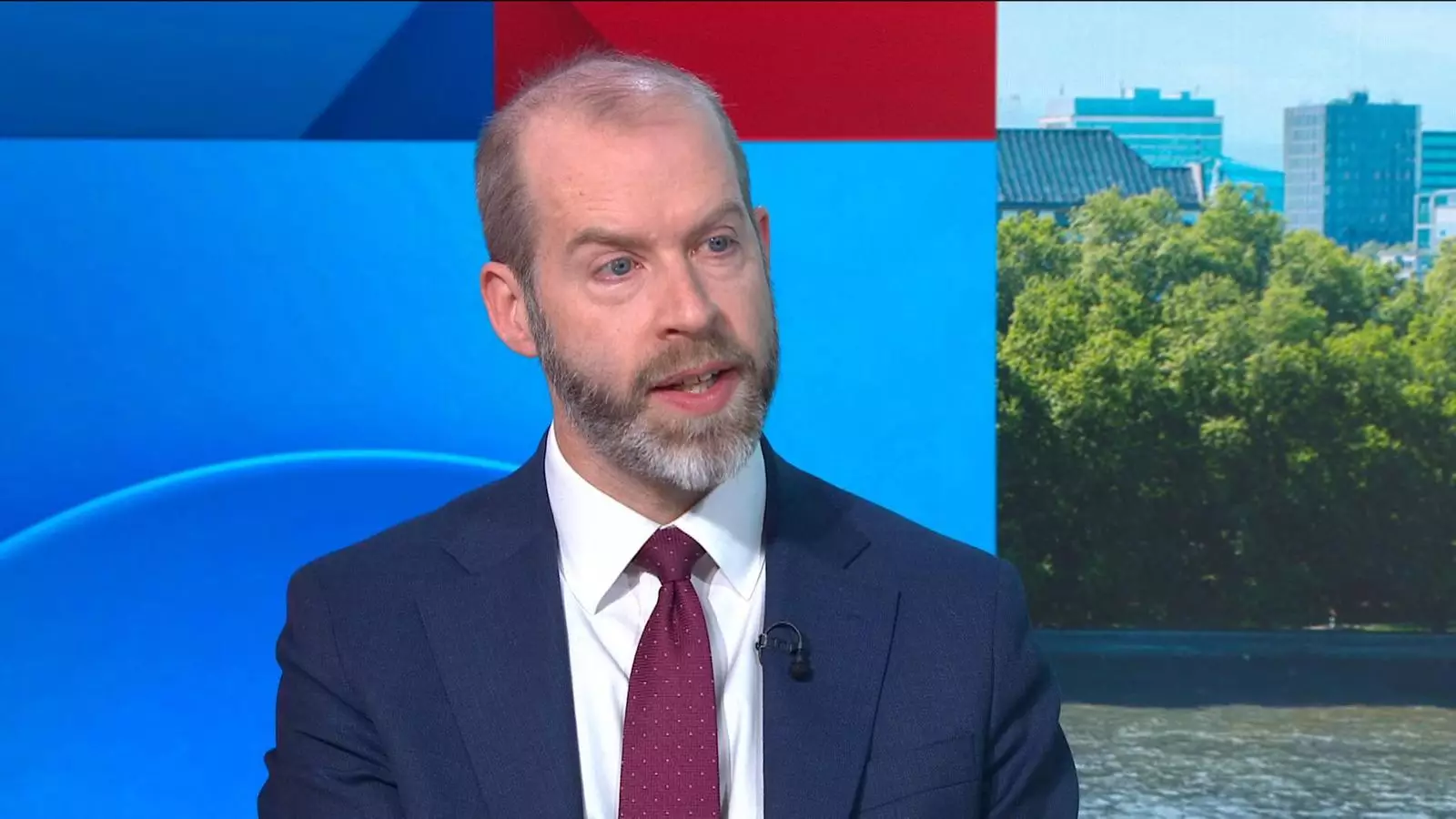The recent upheaval surrounding British Steel and its Chinese owner, Jingye, sheds light on a deeper existential crisis within the UK’s steel industry. With a sense of urgency, the business secretary declared that no Chinese company would be brought into this “sensitive” sector again, following a government intervention that almost mirrored a nationalization strategy. While many might perceive this as an effective emergency response, it raises fundamental questions about the sustainability and future of strategic industries in the UK.
Certainly, it’s concerning that we’ve reached a point where the government must legislate, with little hesitation, to commandeer a company in a crucial industry simply to keep the lights on. The newly minted Steel Industry (Special Measures) Bill grants the government extraordinary powers, allowing ministers to make critical decisions regarding operations and finances—a telling indication that the market is failing to self-regulate effectively. The underpinning message here is clear: the notion of market supremacy often crumbles when real-life, heavy metal challenges emerge.
Trust Issues and the Chinese Connection
Jonathan Reynolds’ acknowledgment that there is a “high trust bar” for Chinese investments in the UK strikes at the heart of a significant issue: should we, as a nation, continue to tether our critical industries to foreign stakeholders? The nature of international business relations has evolved. The consequences of relying on Jingye became all too apparent when they reneged on significant orders, destabilizing a pivotal industry on which many livelihoods depend.
This distrust extends beyond mere political posturing; it reflects real consequences for workers and consumers alike. The reluctance to engage further with Chinese firms underlines a broader geopolitical sentiment that’s gaining traction in Western democracies: national self-sufficiency must not be underestimated. The stark reality is that our economic strategy cannot just be about attracting foreign investment but must prioritize the core industries that represent our national identity.
Government Intervention vs. Market Solutions
The inheritance of Jingye’s mismanagement can arguably be traced back to previous administrations’ decisions, which prioritized foreign investment over domestic integrity and long-term strategy. The emergency measures taken by the House of Commons and House of Lords expose the flawed foresight of earlier governmental decisions that favored short-term gains.
Critics have characterized the emergency bill as a “botched nationalization,” arguing that it inadequately addresses the core issue while unlatching the door for future recklessness. What is particularly concerning is that despite the government’s intervention, public ownership—a “likely option,” as Reynolds boldly noted—seems to be the prevalent pathway forward. Is this the best scenario we can envision for a foundational industry?
While public ownership may provide a semblance of stability, it begs the question: should taxpayers have to foot the bill for a private enterprise’s failures? And if public ownership becomes the norm, what does that predict for future investments in other critically sensitive sectors?
Looking Ahead: Bridging Investment Gaps
The dialogue surrounding potential private sector partnerships offers a glimmer of hope but also reaffirms a critical point: the enormity of capital required for transitioning to advanced steel technology remains daunting. There is talk of finding investment bridges for this transition, yet do we have a coherent strategy for attracting such commitment without jeopardizing our industries’ independence?
Transitioning to modern steel production methods is vital; however, the government must create a conducive environment for investment without compromising national interests. That means embracing innovation while ensuring that such technological advancements are rooted in local capabilities— knowledge that is owned by and retained within the UK.
The challenge lies not just in the preservation of British Steel but in reimagining the entire industrial landscape. The current crisis has served as a poignant reminder of how intertwined our economy is with international dynamics, and how essential it is to possess a robust, resilient industrial base to safeguard against unpredictable foreign entanglements.
As discussions of public ownership bloom alongside concerns over foreign investment evaporating, we must consider the broader implications of these choices for future generations. A nation should not merely survive on the fumes of foreign aid; it must ignite its engines of production with a vision that champions local autonomy and sustainability in all corners of its economy.



Leave a Reply